About The Lee Center
Welcome to The Lee Center! We offer a variety of services to help those struggling with addiction and mental health issues. Our alcohol rehab, dual diagnosis, and opioid addiction programs are designed to help individuals overcome their addiction and get on the path to recovery. We also offer adult, men’s, and women’s programs, as well as a young adult program, to help those struggling with addiction and mental health issues.
Addiction Treatment Programs
Alcohol Rehab
In South Carolina, an alcohol rehab provides a combination of therapy and education to help clients overcome alcohol misuse. Whether you need detox, inpatient treatment, or outpatient care, an alcohol program will help you build a new lifestyle based on healthy coping mechanisms, better relationships, and a new way of thinking about life.
Dual Diagnosis
When you have a dual diagnosis, you have mental health and substance use concerns. It’s important to choose a rehab in South Carolina that can treat both. Whether you need detox, inpatient treatment, or outpatient care, a dual diagnosis program will offer specific support for your mental health needs alongside traditional substance use treatment.
Opioid Addiction
Rehab in South Carolina helps clients find the motivation to make a change and gives them the tools to break free from opioid addiction and achieve long-term sobriety. During this program, you’ll work with professional counselors to deal with the psychological, emotional, and physical issues that opioid misuse can cause. Over time, you’ll learn how to live without substance use long-term.
Drug Rehab
Drug rehab in South Carolina can give you the tools and skills you need to reclaim your life and achieve long-term recovery. In a drug treatment program you’ll not only receive treatment, but you’ll participate in activities, receive peer support, and learn how to have fun without substance use.
Adult Program
Those who join an adult program in South Carolina are given training in key life skills to help them with parenting, their career, and more. Whether you need detox, inpatient treatment, or outpatient care, an adult program will offer specific support for your emotional, mental, and social needs.
Men's Rehab
If you’re a man struggling with substance use, consider a men’s rehab program in South Carolina. Whether you need detox, inpatient treatment, or outpatient care, a men’s program will offer specific support for your emotional, mental, and social needs.
Women's Rehab
A women’s rehab in South Carolina addresses the recovery needs of female clients and gives them the tools they need to succeed. Whether you need detox, inpatient treatment, or outpatient care, a women’s program will offer specific support for your emotional, mental, and social needs.
Young Adult Rehab
Young adult rehabs in South Carolina help young people overcome substance use and learn new life skills. Whether you need detox, inpatient treatment, or outpatient care, a young adult program will offer specific support for your emotional, mental, and social needs.
Insurance Coverage
Medicaid
If you qualify, Medicaid can help pay for some or all of the costs of rehab in South Carolina. Using Medicaid keeps your costs, if there are any, very low. You can access any type of care, including detox, inpatient, and outpatient.
Private insurance
How do you pay for rehab in South Carolina? If you have private insurance, consider using it to pay for some or all of the costs of treatment. You may have out-of-pocket costs such as a deductible or copay, and you’ll want to look for a treatment center in-network with your insurance coverage.
Self-pay options
If you want maximum flexibility in choosing a treatment center in South Carolina, you might choose to use self-pay. This involves using a medical loan, writing a check, or sending money to the center electronically. Fee structures may vary depending on the level of care.
Financial aid
When looking for ways to pay for rehab in South Carolina, consider asking about financial aid programs. Treatment centers may offer grants or scholarships that make it easier for those who are lower-income to get the care they need. Contact the treatment center you’re interested in for details.
Medicare
If you’re looking for ways to pay for rehab in South Carolina, consider using Medicare. Keep in mind that Medicare plans vary, so it’s important to check on coverage information and to find out which treatment centers accept your coverage.
Military insurance
For those who qualify, military insurance is a good way to pay for substance use treatment in South Carolina. Your insurance plan can pay for some or all of the costs of rehab, especially if you choose a center that’s in the plan’s network. Be sure to check with the insurer to get full details.
Employee Assistance Program
Levels of Care
- 1
Outpatient Rehab
During outpatient treatment in South Carolina, clients receive evidence-based treatment while living at home or in sober living. Building a new life for yourself takes time, and it’s important to have enough support throughout the process. Outpatient treatment allows you to have more intensive or less intensive help, depending on your needs.
- 2
Aftercare Support
During aftercare in South Carolina, clients will receive ongoing support that makes it easier to practice their new habits and maintain recovery. Some aftercare programs will help you connect to community resources and social services in your area, from housing to healthcare to financial assistance.
Therapies
Cognitive Behavior Therapy
Cognitive behavioral therapy in South Carolina can help you challenge the thoughts behind your emotions and actions. Substance use treatment includes detox, inpatient treatment, and outpatient care, and CBT may be a part of each of these stages. The goal is to help clients identify distorted thinking, replace it with rational thinking, and change their responses accordingly.
Experiential Therapy
The goal of experiential therapy in South Carolina is to help you process your emotions and gain confidence in your ability to create positive change. By participating in art, music, or physical activities like hiking, you can learn to face internal issues without turning to substance use. Instead, you’ll develop healthy coping mechanisms.
Family Therapy
During family therapy in South Carolina, clients have a supportive environment to talk with family members about conflict and unhealthy behaviors that may trigger substance use. There are several goals in family therapy. Some sessions may be focused on specific past events, while others address current broken relationships or how good intentions have gone astray. Over time, family relationships can be restored, making recovery easier.
Group Therapy
During group therapy in South Carolina, clients have a safe environment to share their struggles with others going through similar issues. Substance use treatment includes detox, inpatient treatment, and outpatient care, and group therapy may be a part of each of these stages. The goal is to help clients support each other, provide accountability, and relate to each other’s experiences.
Individual Therapy
Individual therapy in South Carolina is led by a professional therapist who talks to you about your specific experiences and emotions. Some of the topics covered in individual therapy include developing healthy coping skills, addressing past events that may have played a part in substance use, and building a support network.
Trauma Therapy
If you struggle with addiction in South Carolina, it’s common to feel like no one understands what you’ve been through. Trauma-informed therapy can help you find professional help addressing your past and creating a healthier response going forward. Both inpatient treatment and outpatient care can include trauma-informed therapy, which helps you create a feeling of safety, access peer support, embrace the validity of your feelings, and create healthy coping skills.
Accreditations
Location
Contact The Lee Center
Top Drug Rehab Centers in South Carolina
-
 South Carolina
South CarolinaAce Recovery for Men ARM
1477 Ted Melton Road Chesterfield, South Carolina 29709
-
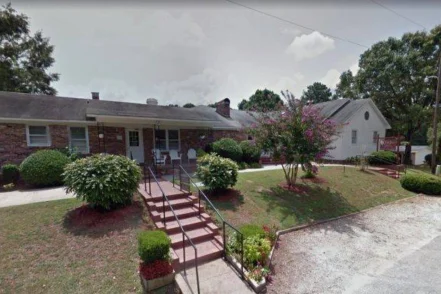 South Carolina
South CarolinaFaith Home Christian Recovery
144 Faith Home Road Greenwood, South Carolina 29648
-
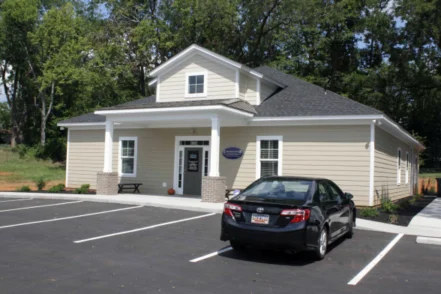 South Carolina
South CarolinaCornerstone Abbeville
103 Whitehall Street Abbeville, South Carolina 29620
-
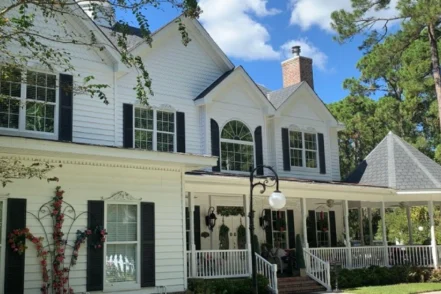 South Carolina
South CarolinaBriteLife Recovery
2200 Main Street Hilton Head Island, South Carolina 29926
-
 South Carolina
South CarolinaGrace Home Vance
501 Ltd Rd., Suite 16 Vance, South Carolina 29163
-
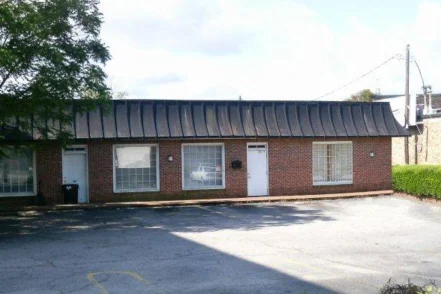 South Carolina
South CarolinaCrossroads Treatment Centers
1421 Bluff Road Columbia, South Carolina 29201
-
 South Carolina
South CarolinaRecovery Concepts Easley
1653 East Main Street Easley, South Carolina 29640
-
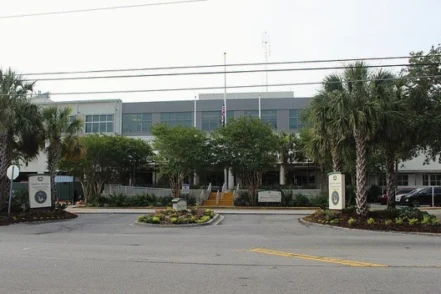 South Carolina
South CarolinaRalph H Johnson VA Medical Center
109 Bee Street Charleston, South Carolina 29401
-
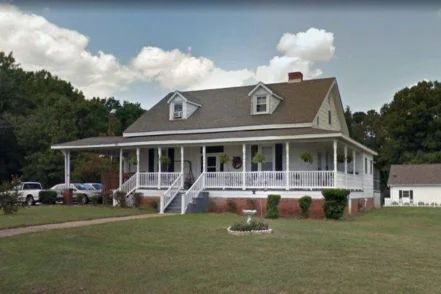 South Carolina
South CarolinaOaks Recovery Center Greenwood
711 East Scotch Cross Road Greenwood, South Carolina 29646
-
 South Carolina
South CarolinaCenter for Behavioral Health North Charleston
2301 Cosgrove Avenue, Suite F North Charleston, South Carolina 29405
